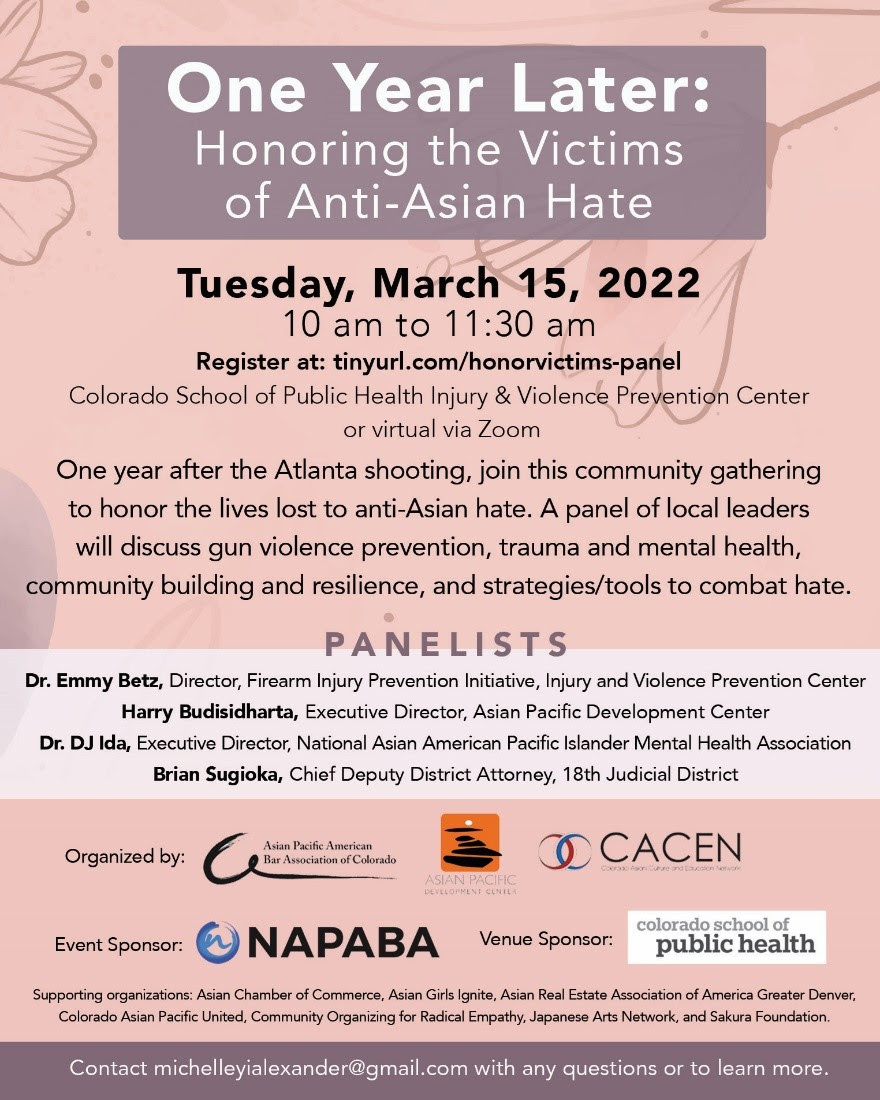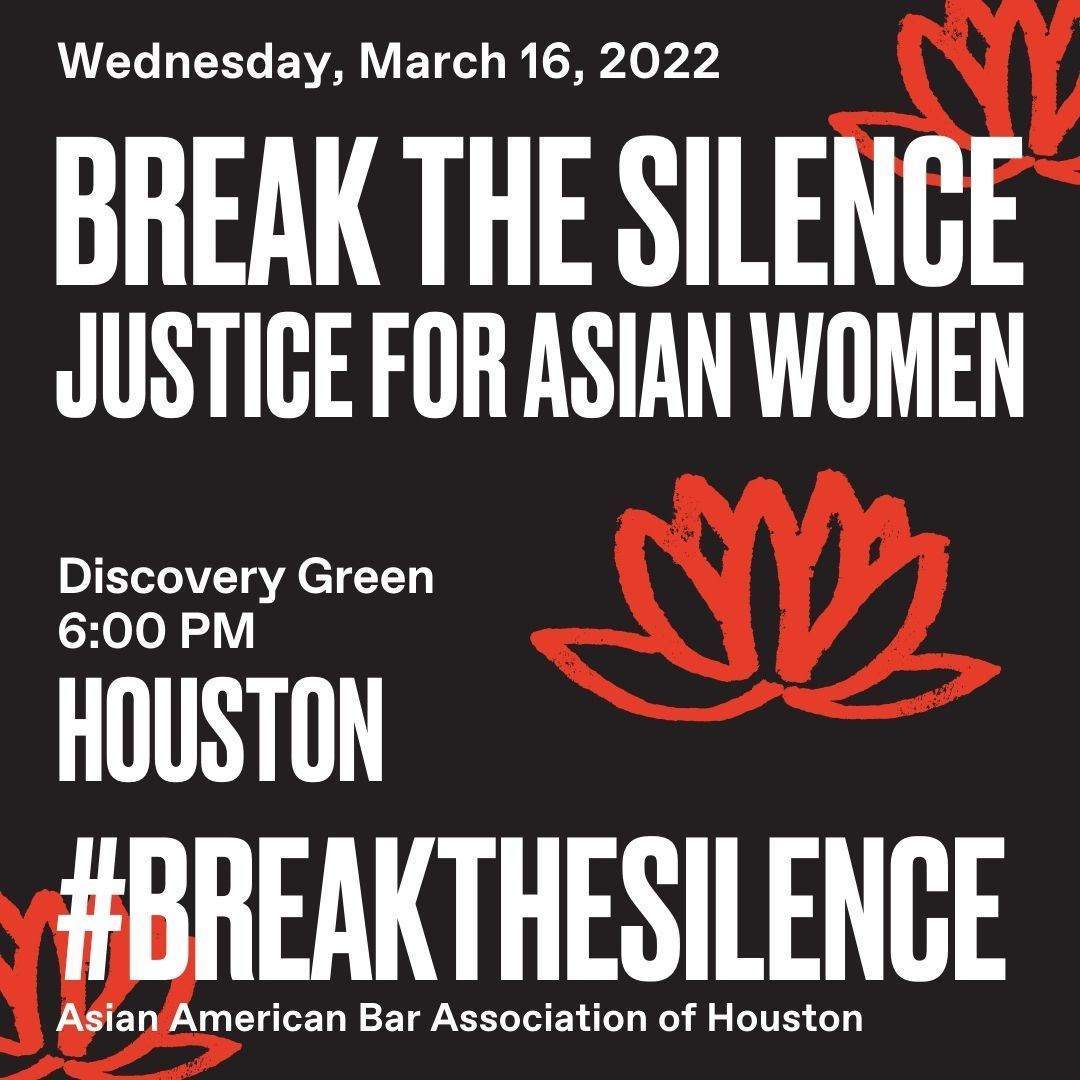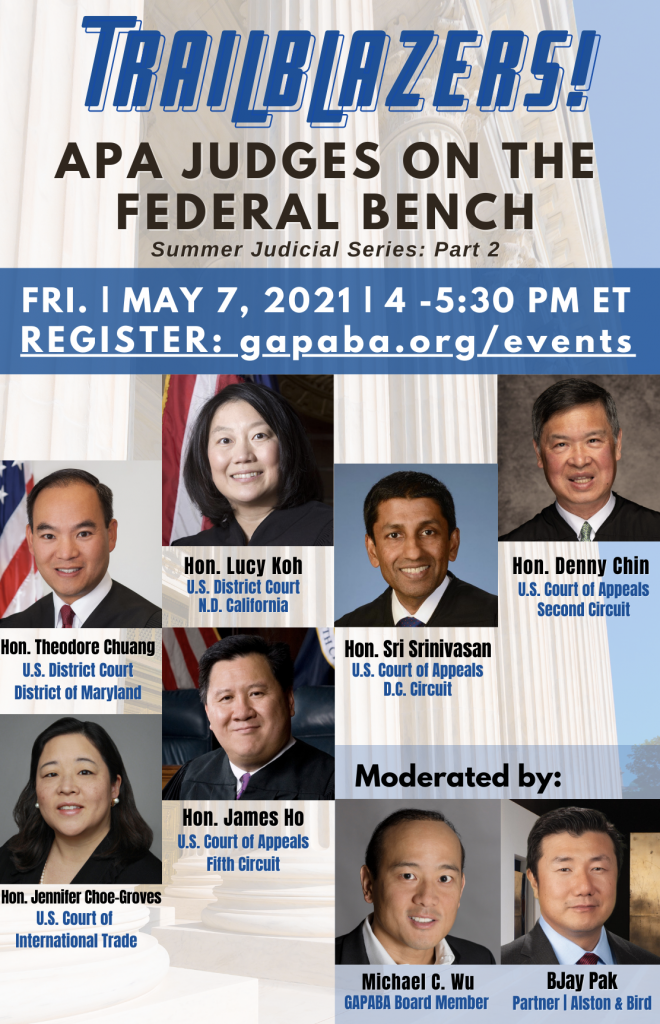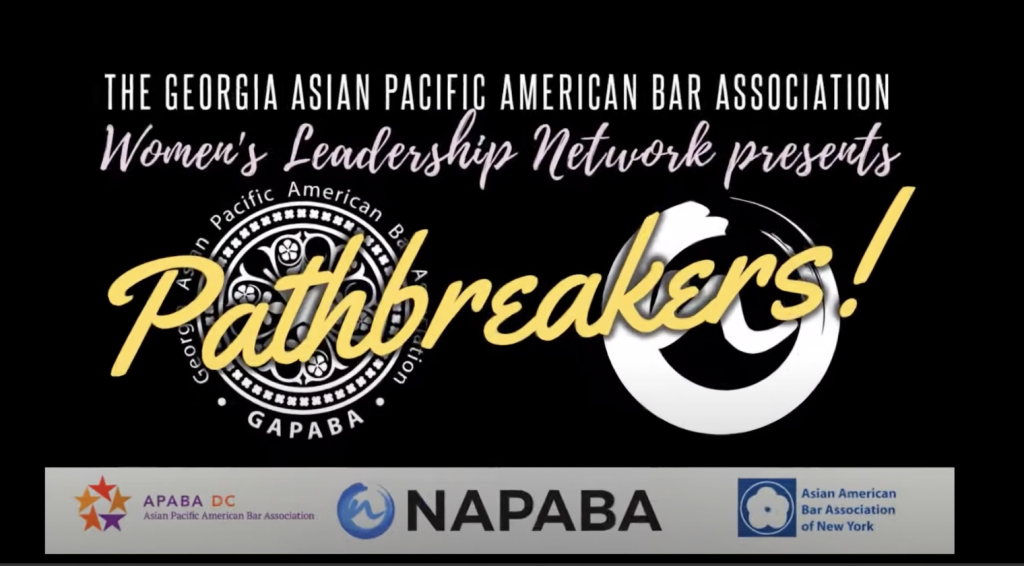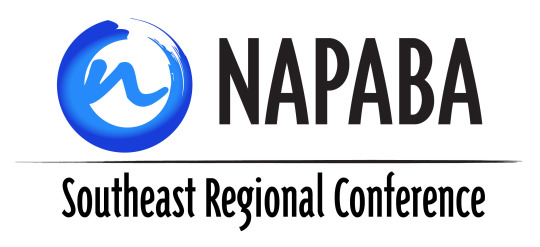For Immediate Release:
Date: March 16, 2022
Contact: Mary Tablante, Associate Strategic Communications & Marketing Director
Expansion of new nationwide resource comes at one-year anniversary of Atlanta-area shootings
WASHINGTON –On the one-year anniversary of the tragic Atlanta-area shootings, The National Asian Pacific American Bar Association (NAPABA) and the Georgia Asian Pacific American Bar Association (GAPABA) are proud to announce their partnership on a nationwide compensation and education fund. The Asian American and Pacific Islander (AAPI) Crime Victims & Education Fund will provide financial assistance to AAPI crime victims and support educational and awareness programs aimed at reducing violence and bias targeting the AAPI community.
“The tragic attacks on Asian American communities continue,” said A.B. Cruz III, Acting President of NAPABA. “As we receive requests for legal assistance, we recognized the need for more comprehensive support for victims, including for mental health. Through this partnership with GAPABA, we will support the growing need for a coordinated national network of support for victims of hate.”
“One year ago, our community was rocked by an act of hate and misogyny during the Atlanta mass shootings,” said Timothy Wang, President of GAPABA. “In response we not only provided direct legal and financial support to the families, but also organized a perpetual fund to support future victims. We believe this fund is the first of its kind and fills a vital need by providing funds to people when they need it the most – car and rent payments are the last thing anyone should have to think about following a hate incident. We are proud to partner with NAPABA and leverage NAPABA’s scale, infrastructure, and know-how to expand this initiative and amplify its impact.”
The AAPI Crime Victims & Education Fund will be jointly administered by NAPABA and GAPABA. The Fund builds on NAPABA’s existing intake and referral network and infrastructure and the lessons learned from the response to the shootings in Atlanta and elsewhere around the country. The Fund will work with local AAPI community-based organizations to identify and direct support to needed individuals.
Requests will be made accessible in conjunction with NAPABA’s incident reporting form. The Fund will issue high-speed, targeted relief assistance to help support the immediate costs faced by the victim and their family, including medical expenses. The initial endowment for the Fund is provided by NAPABA, GAPABA, and numerous personal and corporate donors.
The Fund will be accessible to the public in the coming months. For more information about the Fund and its launch please visit https://bit.ly/NAPABAHateCrimes.
###
The National Asian Pacific American Bar Association (NAPABA), represents the interests of over 60,000 Asian Pacific American (APA) legal professionals and nearly 90 national, state, and local APA bar associations. NAPABA is a leader in addressing civil rights issues confronting APA communities. Through its national network, NAPABA provides a strong voice for increased diversity of the federal and state judiciaries, advocates for equal opportunity in the workplace, works to eliminate hate crimes and anti-immigrant sentiment, and promotes the professional development of people of all backgrounds in the legal profession.
The Georgia Asian Pacific American Bar Association (GAPABA), founded in 1993, is a registered affiliate of NAPABA and is one of the leading affinity bar associations in the Southeastern United States. GAPABA has grown to over 600 members and counts among its ranks general counsel of major corporations, elected officials, judges and public servants, partners at top-ranked firms, and attorneys who lead their own practices. GAPABA’s charitable arm, the GAPABA Law Foundation, has raised and donated over $100,000 annually to organizations that serve the community and provide pro bono legal services.



